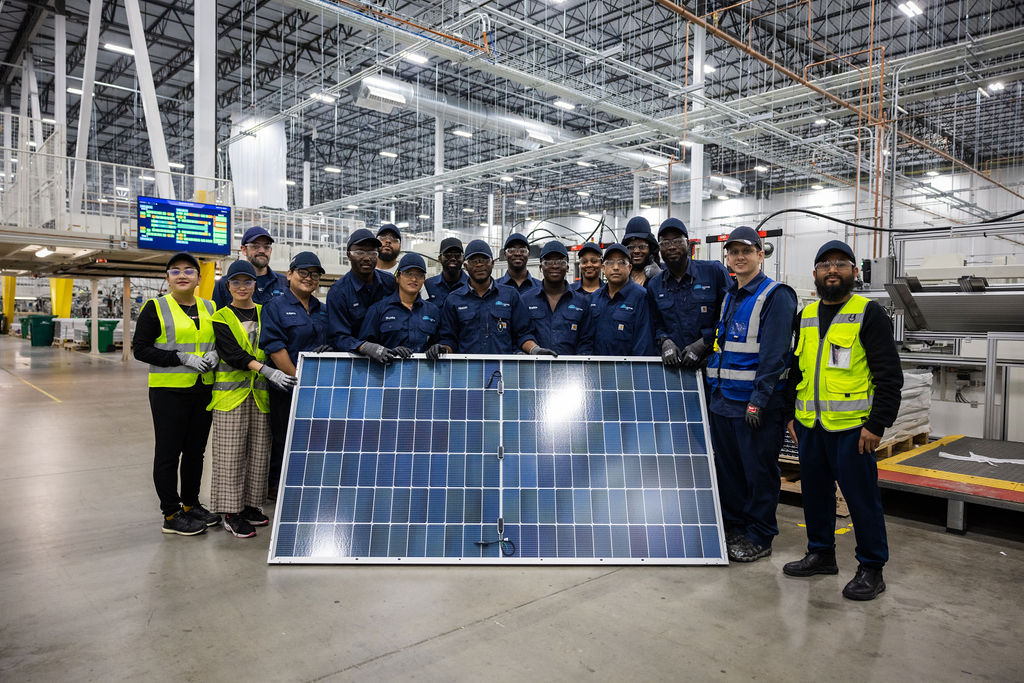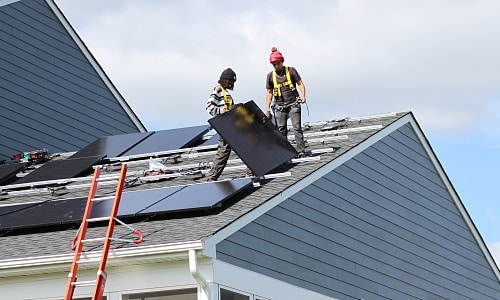Some Of Residential Solar Panels Virginia
Some Of Residential Solar Panels Virginia
Blog Article
Buy Solar Panels Virginia: Lumina Solar Concentrates On Providing Advanced Photovoltaic Solutions For Homes And Services
History and Establishing
Have you ever wondered how a photovoltaic panel company springs from a simple stimulate of motivation into a powerhouse of renewable energy? It typically begins with a vision-- one fueled by a blend of innovation, determination, and a pinch of serendipity. The journey of many solar business mirrors the evolution of the technology itself: from large, inefficient panels to streamlined, high-efficiency marvels utilizing the sun's bounty.
The Early Days
In the late 20th century, when solar energy was still a here niche principle, leaders planted seeds for what would end up being a worldwide movement. Picture a small workshop filled with curious engineers, relentlessly try out photovoltaic cells. Their enthusiasm was palpable, frequently driven by a desire to combat environment change and reduce reliance on nonrenewable fuel sources.
One such anecdote is about a founder who, motivated by a camping journey, recognized that even in remote areas, the sun might power essential devices. This simple observation triggered a business's mission to equalize access to tidy energy.
Founding Concepts

- Development: Constantly pushing the boundaries of solar innovation to enhance effectiveness and resilience.
- Sustainability: Committing to environment-friendly manufacturing and minimizing carbon footprints.
- Accessibility: Making renewable resource services economical and useful for daily users.
Milestones in Growth
| Year | Key Occasion |
|---|---|
| 1985 | Company founded in a small garage, focusing on research study and development. |
| 1995 | Industrial solar panel product released, gaining regional attention. |
| 2005 | Broadened to international markets, welcoming global renewable energy goals. |
| 2015 | Introduced innovative solar panel technology with enhanced energy conversion. |
Isn't it fascinating how these incremental actions, frequently ignored, shape the energy landscape today? The solar panel company story is not practically technology; it has to do with an unrelenting quest for a brighter, cleaner future.

Innovations in Solar Panel Technologies
Ever observed how some photovoltaic panels shine brighter and last longer? It's not magic; it's the science of photovoltaic effectiveness. Modern photovoltaic panel business invest heavily in technologies like bifacial cells, which catch sunlight from both sides, boosting energy harvest without broadening roofing system space. Have you ever questioned why some panels perform better on cloudy days? That is because of advances in thin-film solar innovation, which thrives under diffused light conditions.
Item Variations Customized to Special Needs
One size never fits all. Solar panel suppliers now offer:
- Monocrystalline panels for maximum performance and streamlined visual appeals, perfect for space-constrained rooftops.
- Polycrystalline panels, which provide an economical alternative without compromising excessive output.
- Building-integrated photovoltaics (BIPV), combining solar tech perfectly into architectural components like windows and facades.
Choosing the ideal item isn't almost upfront expense; it has to do with matching your environment, energy goals, and long-lasting savings. Homes shaded by trees require panels that excel in low-light circumstances, something numerous ignore till energy costs climb up suddenly.
Technical Tips for Optimal Choice
- Examine the temperature coefficient-- lower values indicate panels lose less efficiency on hot days.
- Try to find panels with enhanced anti-reflective finishings to take full advantage of light absorption.
- Consider the panel's service warranty not just for defects, but for ensured power output over decades.
- Don't ignore the significance of the inverter innovation paired with the panels; it can make or break your system's efficiency.
Beyond Panels: Emerging Patterns
Imagine photovoltaic panels that adjust their angle immediately to chase the sun-- tracking systems are becoming more available, increasing yield substantially. Or solar tiles that mix undetectably into your roofline, changing your home into a silent, self-dependent power generator. These developments are improving what a photovoltaic panel business uses-- not just products, however integrated energy services.
Market Presence and Global Operations
Ever question why some solar panel business appear to grow up in every corner of the globe while others hardly make a ripple? The difference lies not just in innovation however in mastering the art of navigating varied markets. Broadening worldwide resembles planting seeds in different climates-- you need to understand each environment's unique conditions to thrive.
Take, for circumstances, the elaborate dance of logistics and supply chain management. Shipping panels midway across the world isn't simply about distance; it's about timing, custom-mades, tariffs, and adjusting to local demand changes. A company with robust international operations expects these variables, ensuring panels get here on schedule without pumping up expenses. This insight is no small task and typically separates market leaders from followers.
Key Strategies for Expanding Market Presence
- Localized production: Establishing production hubs near target markets reduces shipping delays and import complexities.
- Strategic collaborations: Teaming up with regional companies speeds up market penetration and develops trust.
- Adaptive product design: Tailoring photovoltaic panel tech to weather, sun intensity, and infrastructure nuances boosts performance and acceptance.
What about the human aspect? Photovoltaic panel companies operating globally must fix up cultural differences and regulatory subtleties without forgeting their core mission. What works in a sun-drenched desert might falter in a damp coastal area. Often, the most innovative option is simply listening-- soaking up regional insights to refine innovation and approach.
Professionals typically advise a phased rollout instead of a shotgun growth. Why risk overextension when measured development develops sustainable momentum? Scaling sensibly means balancing ambition with operational resilience - Best Solar Panel Company Virginia. In the race for sustainable energy dominance, persistence can be as valuable as speed.
Ecological Effect and Sustainability Practices
When solar panels initially emerged, lots of presumed they carried absolutely no ecological baggage. However, the truth is more nuanced. The production of photovoltaic cells involves unusual earth metals and energy-intensive procedures, which can leave a substantial carbon footprint before the panels even reach roofs. Yet, the true ecological cost depends heavily on the sustainability practices utilized by the solar panel business throughout the lifecycle of their items.
How typically do we stop briefly to consider what takes place to solar panels at the end of their helpful life? Unlike batteries or electronics, photovoltaic panels can last 25-30 years, however disposal and recycling pathways remain underdeveloped in many regions. A business devoted to minimizing environmental harm will have a robust prepare for recycling photovoltaic products, restoring valuable silicon, glass, and metals to prevent garbage dump accumulation.
Key Sustainability Techniques
- Utilizing low-impact manufacturing strategies that minimize water and energy consumption.
- Executing closed-loop systems to recycle production waste back into new panels.
- Participating in transparent supply chain audits to guarantee ethical sourcing of raw materials.
- Creating panels for much easier disassembly to assist future recycling efforts.
It deserves keeping in mind that some solar companies have pioneered innovative approaches, such as incorporating eco-friendly parts or using less poisonous chemicals throughout fabrication. This not only minimizes environmental stress however also sets a precedent for the market. The concern stays: can the solar market genuinely pivot towards a circular economy design without sacrificing efficiency or cost?
Expert Tips for Assessing Sustainability
- Ask about the business's dedication to carbon-neutral production and whether they balance out emissions.
- Examine if they partner with accredited recycling facilities devoted to photovoltaic panel waste.
- Search for openness reports detailing ecological effects and sustainability goals.
- Consider the durability and warranty of panels as an indirect measure of resource efficiency.
In the end, choosing solar energy must indicate more than just slashing electrical energy bills; it has to do with nurturing a future where energy is collected responsibly and waste is attentively managed. Solar panel companies that embrace this approach not just illuminate homes however likewise cast a brighter light on sustainable innovation.
Report this page